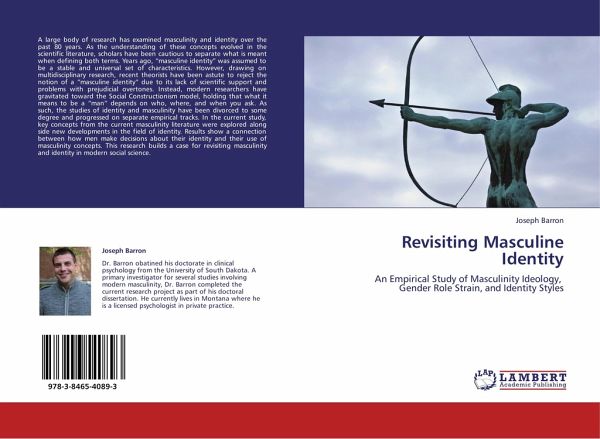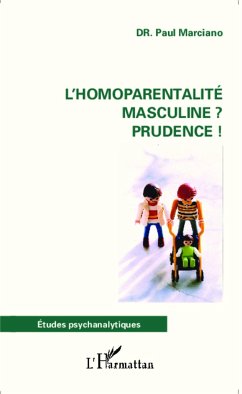
Revisiting Masculine Identity
An Empirical Study of Masculinity Ideology, Gender Role Strain, and Identity Styles
Versandkostenfrei!
Versandfertig in 1-2 Wochen
32,99 €
inkl. MwSt.

PAYBACK Punkte
16 °P sammeln!
A large body of research has examined masculinity and identity over the past 80 years. As the understanding of these concepts evolved in the scientific literature, scholars have been cautious to separate what is meant when defining both terms. Years ago, "masculine identity" was assumed to be a stable and universal set of characteristics. However, drawing on multidisciplinary research, recent theorists have been astute to reject the notion of a "masculine identity" due to its lack of scientific support and problems with prejudicial overtones. Instead, modern researchers have gravitated toward ...
A large body of research has examined masculinity and identity over the past 80 years. As the understanding of these concepts evolved in the scientific literature, scholars have been cautious to separate what is meant when defining both terms. Years ago, "masculine identity" was assumed to be a stable and universal set of characteristics. However, drawing on multidisciplinary research, recent theorists have been astute to reject the notion of a "masculine identity" due to its lack of scientific support and problems with prejudicial overtones. Instead, modern researchers have gravitated toward the Social Constructionism model, holding that what it means to be a "man" depends on who, where, and when you ask. As such, the studies of identity and masculinity have been divorced to some degree and progressed on separate empirical tracks. In the current study, key concepts from the current masculinity literature were explored along side new developments in the field of identity. Results show a connection between how men make decisions about their identity and their use of masculinity concepts. This research builds a case for revisiting masculinity and identity in modern social science.












